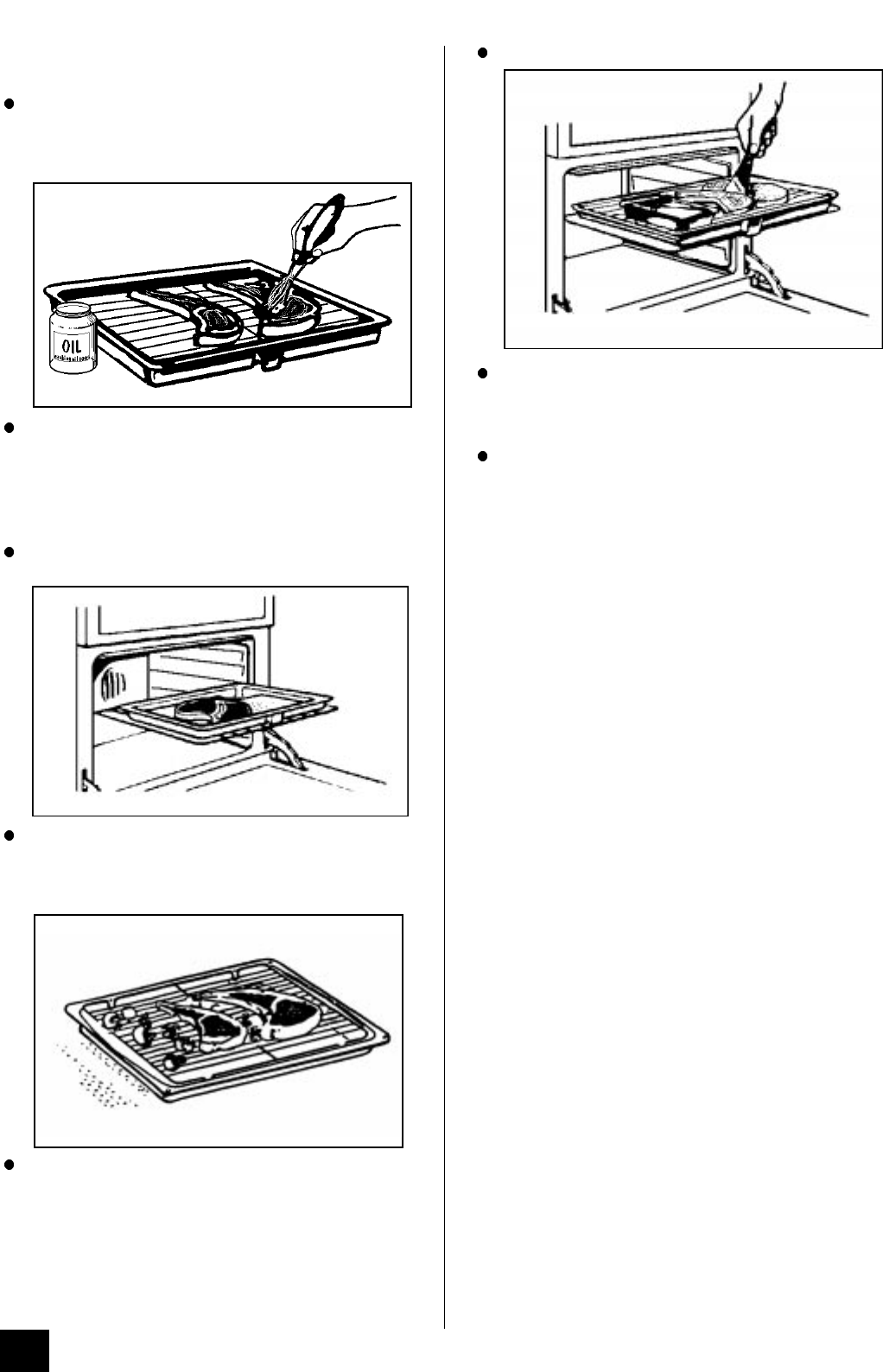
HINTS AND TIPS
Prepare foods in the same way as for
conventional grilling. Brush lean meats and fish
lightly with a little oil or butter to keep them moist
during cooking.
Most food should be placed on the grill pan grid
in the 'high' position in the grill pan to allow
maximum circulation of air around the food. Food
such as fish, liver and kidneys may be placed
directly onto the trivet in the grill pan if preferred.
The use of the trivet beneath the grid when
grilling fatty foods will help minimise splashing.
Accompaniments such as tomatoes and
mushrooms may be placed below the grid when
grilling meats, or in a separate dish on a lower
shelf.
Foods will cook more quickly the closer they are
to the grill element and the higher the
temperatures selected. Be prepared to adjust
temperatures and shelf positions during cooking
if necessary.
Turn food over during cooking as necessary.
Ensure that ready prepared or cooked chilled
dishes e.g. shepherds pie, moussaka, lasagne,
etc., are piping hot throughout before serving.
A temperature range of 140-220°C and shelf
positions 3 and 4 are suitable for most foods. Be
prepared to make suitable adjustments during
cooking to suit individual requirements. If thermal
grilling on more than one level, it may be
necessary to interchange the food on the shelves
during cooking.
COOKING TIMES
Cooking is more gentle, therefore food generally
takes a little longer to cook when thermal grilling
compared with conventional grilling. One of the
advantages is that larger loads can be cooked at the
same time.
A general guide to cooking times is given on page 33
but these times may vary slightly depending on the
thickness and quantity of food being cooked.
32


















